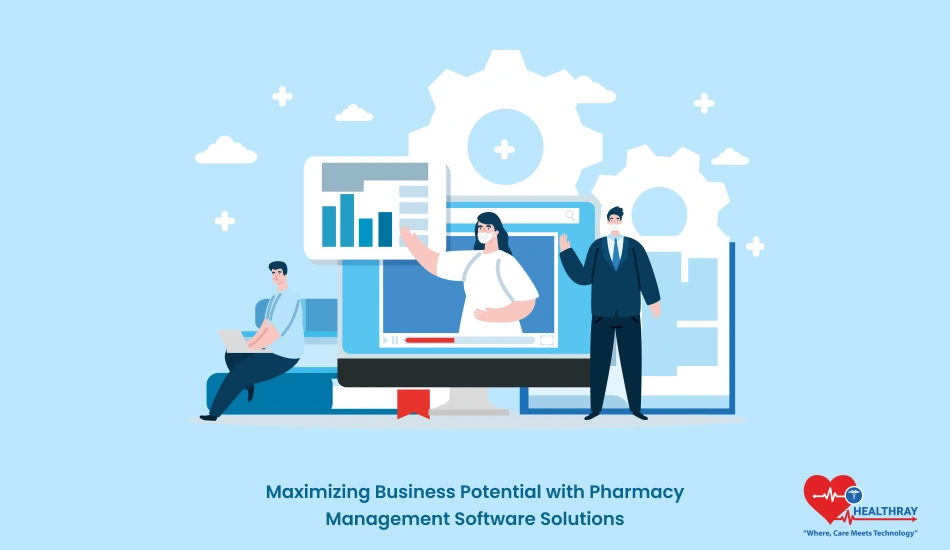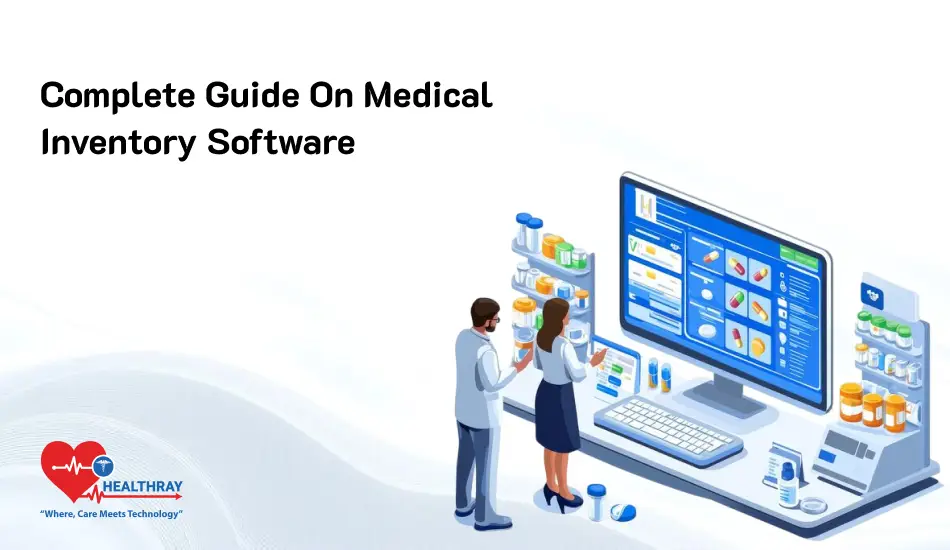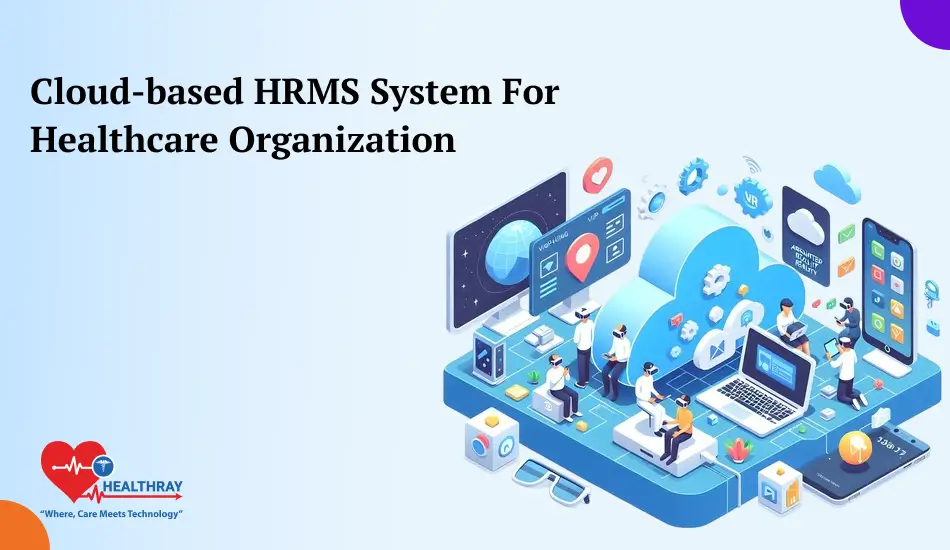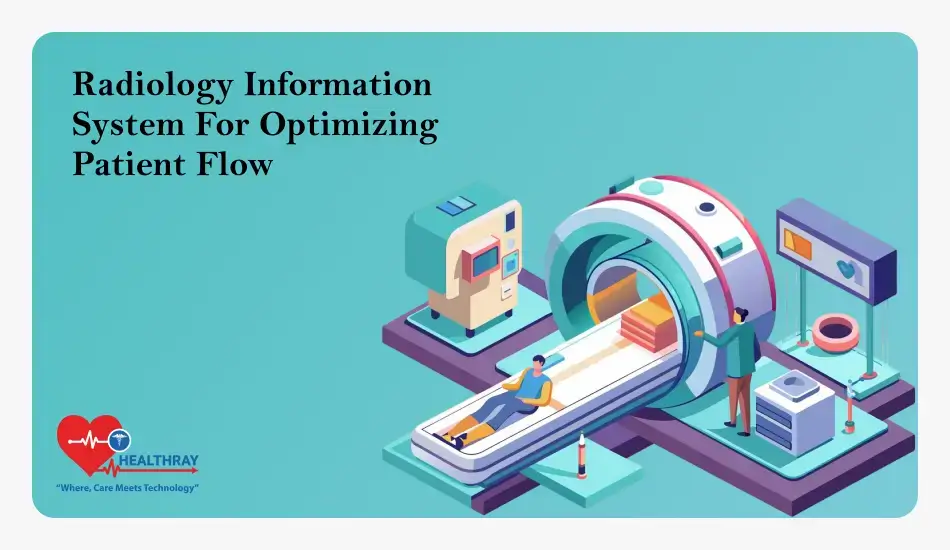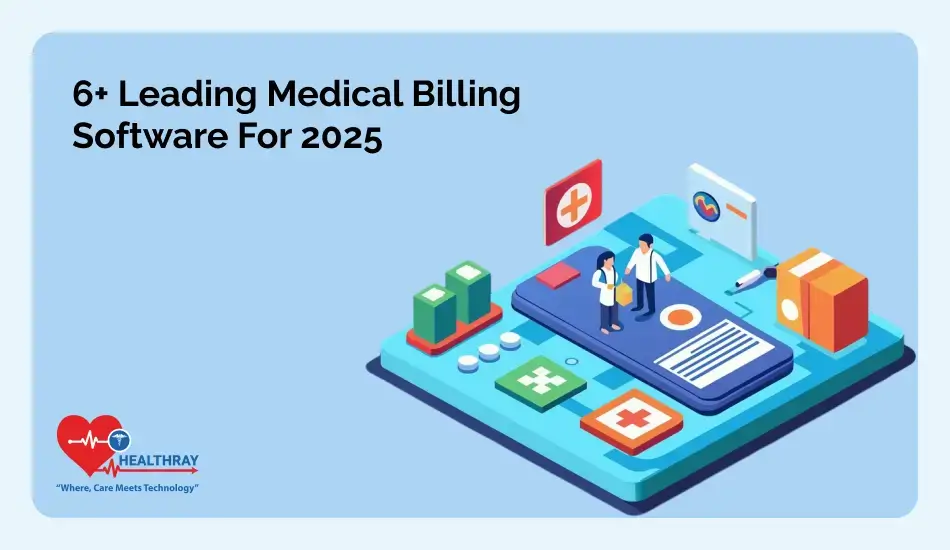To be successful, compliant, and customer-oriented in the competitive pharmacy environment is of utmost importance. Retail pharmacy firms, however, increase in size and are no longer, very far from the point of explosion of data, inventory, customer records and regulatory compliance. The Pharmacy Management System (PMS) software provides a comprehensive solution to manage daily operations efficiently and strategically in this situation.
How does PMS software facilitate the pharmacy’s function? Specifically, it provides means to enhance customer service, monitor compliance standards, and automate inventory control. On top of these ground rules, PMS software provides managers and owners of pharmacies with tools to get access to analytics to support a better decision making for business. Having a system that not only records your stock and automatically places orders, but also gives you sales trends for what sells best and when to make new orders is a dream come true.
This paper will discuss and cover all the data needed to help CTOs/operations managers/IT managers/pharmacy business owners to full advantage to empower their company to use all the possible advantages that PMS software offers. Key features, pharmacy-specific advantages, and what to look for in a Pharmacy Management System to make sure it fits your business needs will all be covered. Irrespective of whether you are working a pharmacy that is one or multiple, this guide will show how you can use PMS software to help you work smarter, stay regulatory compliant and provide a good client experience.
Understanding Pharmacy Management System Software in Pharmacy
Pharmacy Management System (PMS) software is designed to streamline and manage the operational and administrative tasks specific to pharmacies. Though PMS software will vary, they generally feature functionality built for solutions involving inventory management, health codes compliance, and customer relationship management-all specifically targeted to the pharmacy setting.
Okay, what does PMS represent in the sense of what a retail pharmacy is doing? Simply put, the PMS solution would help pharmacies run more effectively as it streamlines most routine activities and offers easy access to all centralized data. Technically speaking, it is the amalgamation of various functions that integrate all such operations under a single roof wherein the pharmacy employees would be allowed to manage, control, process prescriptions, as well as take care of their customers’ database under a single roof.
For instance, in such highly dynamic environments, say in pharmaceutical operations-for example, monitoring drug expiration dates, or in performing replenishments in an application-it’s pretty challenging to monitor and control usage. The PMS software has successfully monitored stock levels and automatically informed the user through alerts when the items are about to run low or are reaching their expiration date. This doesn’t only ensure no stockouts but also serves to ensure the provision of the freshest products available for the customers.
Another reason why a PMS solution is necessary is for compliance. Pharmacies are regulated concerning the management of patient data and the administration of drugs. With built-in compliance functionalities, PMS software can support pharmacies in maintaining correct records, thus ensuring the compliance of pharmacies with the relevant regulations, such as HIPAA (Health Insurance Portability and Accountability Act) in the United States or equivalent regulations in other countries.
Lastly, PMS systems improve customer management. Most of the solutions have features that enable pharmacies to track customer preferences, manage loyalty programs, and send reminders for prescription refills. This focus on customer relationships improves service but also fosters loyalty, a valuable asset in an industry where customer retention is key.
Now that we’ve covered the essentials of what PMS software does, let’s dive into the benefits these systems can offer pharmacy businesses.
Benefits of PMS Software Solutions in Pharmacy Businesses
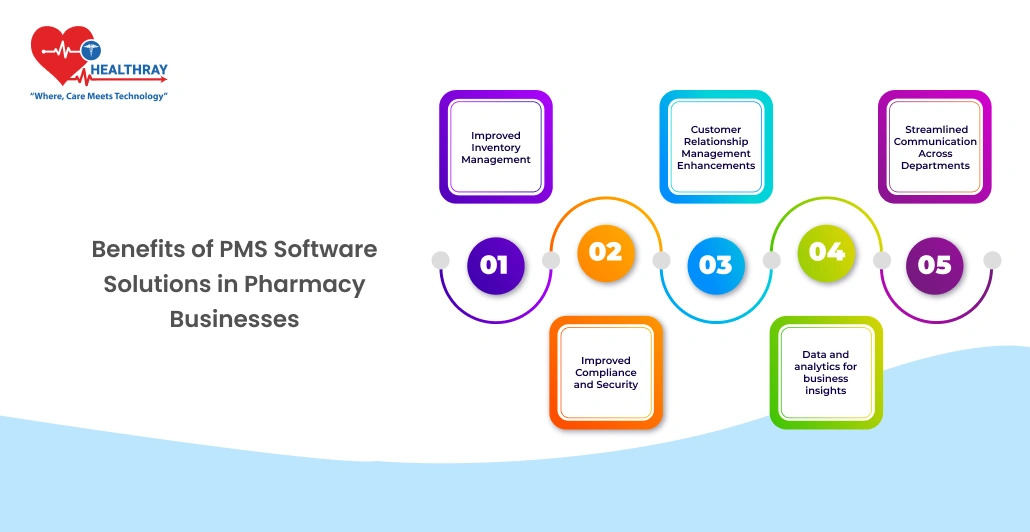
A PMS may actually have a real impact on the working of a pharmacy on a day-to-day basis and on the growth of the pharmacy in the long run. Ranging from reducing the manual speed to maintaining everything orderly, the below given points state how the PMS software can help the pharmaceutical companies:
Improved Inventory Management
Pharmacies rely extensively on the accuracy of inventory management since an inability to provide drugs that can literally save lives is significant for the care of the patient and business reputation. The PMS software automatically controls inventory by signaling when the stock level is running out and when it is predicted to reorder the product based on sales data. This minimizes stockouts and overstocking, helping pharmacies maintain their stock at a near-optimal level with less effort.
Improved Compliance and Security
To begin with, all pharmacies have rules and regulations with regard to strict patient data handling in place to ensure security and safety about medication. Therefore, hospital pharmacy management System can be instrumental in the precise record and protection of patients’ confidential details and automatic review of procedures following a change in regulation. The integrated PMS system minimizes any risk of possible compliance violations for which it pays a cost with a loss to the reputation in case of U.S. by incorporating industry standards like HIPAA.
Customer Relationship Management Enhancements
Customer retention is at the core of a thriving pharmacy business. Pharmacy point of sale systems provide the means through which pharmacies can most effectively utilize customer data, which means individualized experience. It could monitor purchase history by an individual, generate refill reminders, and even dispense loyalty schemes. Now, with the capability of all these functions, pharmacies will find ways to interact with customers better in a manner that fosters loyalty and encourages return visits.
Data and analytics for business insights
Numerous PMS systems have analytic features that allow pharmacies to draw out insights from their operations. These analyses are able to reveal which products are most desirable, forecast demand, and bring out customer preference trends. With access to this data, pharmacy managers can make informed decisions, like adjusting stock based on seasonal demands or identifying opportunities for growth in specific product categories.
Streamlined Communication Across Departments
With the involvement of several locations or departments in a pharmacy, it becomes difficult to coordinate efforts. PMS software integrates messaging into one platform and, therefore, allows for smooth communication between different departments or branches. This can minimize misunderstandings, ensure all people have the latest information, and eventually bring about smoother, faster service for customers.
All these benefits enable running a pharmacy in an efficient manner, enhance customer service, and strictly adhere to the regulations required. With all these elements coming together, the result is a business that is structured to manage its output efficiently while at the same time positioning itself for growth in the long term.
Real-Life Impact: Case Studies and Examples
This is good evidence that direct positive output results from the work of PMS software can be observed. The further description of practical use cases to prove how PMS software can work for the benefit of pharmacy operations is presented below.
Improved Inventory Management of Mid-Sized Pharmacy
Due to perennial out-of-stock and expired stock, a mid-sized pharmacy with an extensive inventory faced lost sales and waste of stocks. After the installation of a PMS with automated tracking of stock and alerts of approaching expiration, within six months, the pharmacy saw a 30% reduction in wasted stock. Using the PMS system to order products by their expiration date, track stock levels, and give reorder alerts will allow the pharmacy to reduce costs and speed up ordering. And as stockouts decreased, the rate of customer satisfaction increased and the average number of return customers increased.
Improved Compliance for a Multi-Location Chain
A chain of pharmacies across different locations needed an order management system that ensured each location met its legal obligations, especially with regards to patient information security. This meant that the chain improved data security, notified all sites of regulatory changes, and deployed a PMS with embedded compliance functions and protected data encryption. Since the PMS software kept thorough records, the chain had control over its data, which facilitated smooth compliance audits. Since the PMS allowed the pharmacy group to manage the completion and accuracy of upgrades in all locations, compliance- and cost-related issues reduced by 20% and cost decreased by 20% over a year.
Better Customer Service in a Busy Pharmacy
This busy pharmacy has an aim of improving client loyalty at a great selection of prescription and OTC medications. If the pharmacy implements a pharmacy software with customer relationship management (CRM) functions, it could maintain a record of customer purchases in the past and set up automatic reminders for scheduled refill of medications. Moreover, they also introduced a loyalty program with the PMS, which adjusted promotions and discounts to each customer’s individual buying patterns. As a result of customers appreciating the ease of reminders and individualized attention, the pharmacy saw a 15% increase in customer retention over the following year.
Data-Driven Decisions in an Independent Pharmacy
A PMS with analytics features was implemented by an independent pharmacy in order to gain a better understanding of customer preferences and sales trends. They discovered seasonal increases in demand for specific products, like supplements in the winter and allergy drugs in the spring, by tracking sales data over time. With this knowledge, they were able to more strategically plan their inventory, cutting down on excess stock while maintaining the availability of popular items. By matching supply to demand, they reduced waste and enhanced cash flow. This systematic way of stock management in the end resulted in a 25% increase in annual profits.
These illustrations show some of the potentially beneficial benefits that can be provided by PMS software to pharmacies, including customer service, inventory management, and compliance. Using a PMS can improve customer loyalty, lower expenses, and increase operational efficiency for any chain, whether it has one location or several.
Future Trends in PMS Software for Pharmacy Businesses
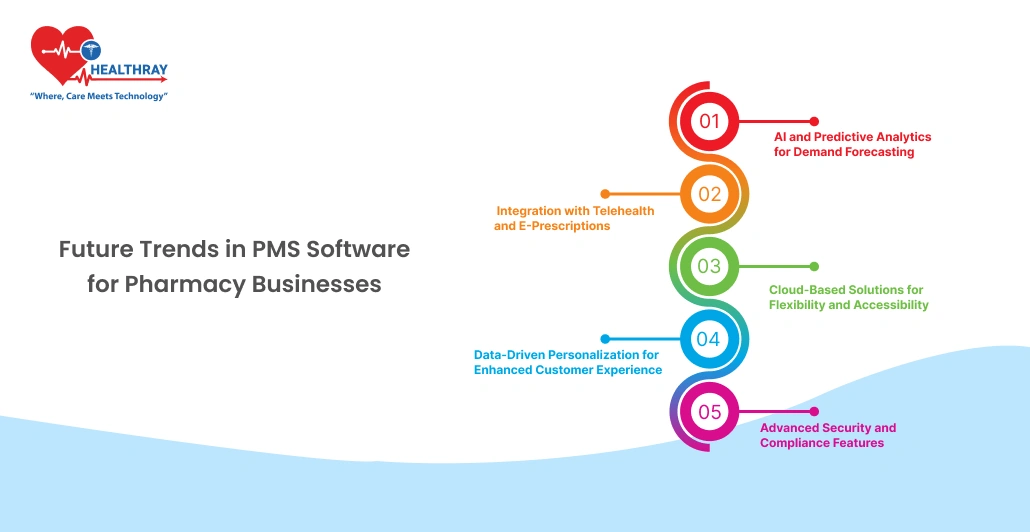
With the increase of technology, Pharmacy Management Systems (PMS) are transforming to respond to the evolving needs in the pharmacy field. The current trend of PMS software is to enrich the features that consolidate operation, improve customer interaction, and lead to advanced data insights. Below are some of the main trends to look out for in PMS software.
AI and Predictive Analytics for Demand Forecasting
Artificial intelligence (AI) is changing most industries and pharmacy management is not an exemption. AI-powered analytics-based PMS solutions can analyze history sales data, and model future demand for drugs and supplies. This leads pharmacies to better manage their stock levels and therefore reduces the prevalence of surpluses and, consequently, stockouts. Predictive analytics are also used in the identification of seasonality, in the planning of pharmacies for high demand periods, such as flu season.
Integration with Telehealth and E-Prescriptions
There has been an increase in the demand for PMS systems capable of being integrated to e-prescription platforms because of the expansion of telehealth and the use of digital prescriptions. Prescription fulfillment is accelerated and error risk is reduced by a PMS that is able to manage digital prescriptions, which are increasingly being acquired by most pharmacies. Through telehealth integration, pharmacies and clinicians can more effectively collaborate, and thus patients can move seamlessly from a virtual visit to the filling of a prescription.
Cloud-Based Solutions for Flexibility and Accessibility
The scalability, and the ability to use it at an increasingly small, and distant level, combined with the flexibility of cloud-based pharmacy management system software solutions makes them increasingly popular. Pharmacies such as numerous stores or may run from home much easier with a cloud-based system as it is possible to access the software from any device. In addition, cloud solutions reduce infrastructure costs by eliminating the requirement for on-site servers. Pharmacies have all the latest features and are always protected by new security updates without manual installations since these are commonly provided by software updating capabilities.
Data-Driven Personalization for Enhanced Customer Experience
Tailored customer experience is more and more prevalent in the new age of PMS software. By using data-driven insights, pharmaceuticals would have the potential to deliver customisable recommendations, loyalty points and location-specific promotions to customers affected by their previous buying habits and medical needs. This trend helps pharmacies build stronger relationships with their customers and increase loyalty, which is in line with the larger movement towards personalized healthcare. A PMS might, for instance, suggest supplements to a client who regularly buys cold remedies, adding value.
Advanced Security and Compliance Features
As regards data privacy issues, and increased regulation, security is being increasingly invested in by PMS software vendors. Future PMS will probably include contemporary security features including biometrics authentication, multi-factor authentication and stronger encryption to secure confidential patient data. Built-in check/ compliance tools will also be strengthened, auto-refresh pharmacies on the changed regulatory conditions in order to prevent compliance errors.
These trends highlight how PMS software is rapidly changing to meet the changing needs of pharmacies and their customers. Through observing these advancements pharmacy enterprises can choose PMS solutions that not only satisfy their present needs but also help position them for the future.
Conclusion
For pharmacy owners, operations managers, and IT executives, adoption of Hospital Management System creates a clear route for improved efficiency and business expansion. With further development of technology, the solutions of PMS are increasingly strong, possessing the functions to promote data-driven decision, integration of telenursing and customerization. These developments are also helping it for pharmacies to remain competitive in a dynamic marketplace.
When selecting a PMS, consider the unique needs of your pharmacy, including scalability, ease of use, and integration capabilities. By choosing a system that aligns with both current operations and future goals, pharmacies can set themselves up for success not just today, but for years to come. With the right PMS software in place, pharmacies can confidently navigate the challenges of the industry and provide better care for their communities.
